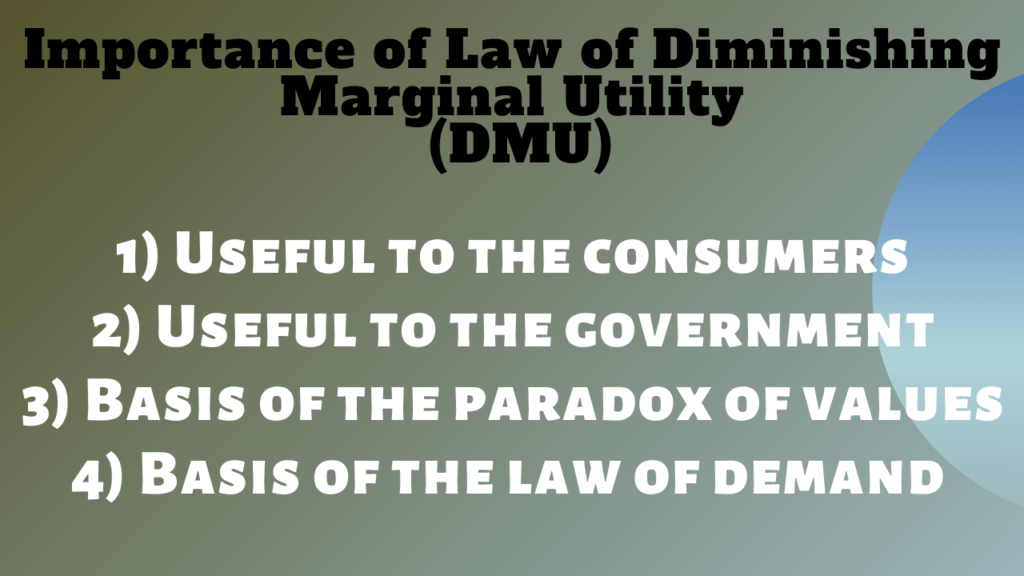Importance of Law of Diminishing Marginal Utility (DMU) | Free Economics Articles
Importance of Law of Diminishing Marginal Utility

What is the Importance of Law of Diminishing Marginal Utility?
Statement of the Law of DMU:
According to Prof. Alfred Marshall, “Other things remaining constant, the additional benefit which a person derives from a given increase in his stock of a thing, diminishes with every increase in the stock that he already has.”
In other words, a marginal utility that any consumer derives from successive units of a particular commodity goes on diminishing as his or her total consumption of that commodity increases. In short, the more of a thing you have, the less you want to have more of it.
- Microeconomic Definition | Historical Review of Microeconomics
- Scope Or Nature of Microeconomics
- Exceptions of Law of Diminishing Marginal Utility
- Criticism of Law of Diminishing Marginal Utility
Importance of Law of Diminishing Marginal Utility
Significance of the Law:
Despite the criticisms, the law of diminishing marginal utility is very popular and important in Economics because of its universal application.
1) Useful to the consumers:
This law creates awareness among consumers. To obtain maximum utility from the limited resources, it is necessary to ‘diversify’ the consumption.
2) Useful to the government:
The law is useful to the government in framing various policies such as progressive tax policy, trade policy, pricing policy, etc.
3) Basis of the paradox of values:
The law of diminishing marginal utility helps us to understand the paradox of values. It includes goods that have more value-in-use and zero or less value-in-exchange such as air, water, sunshine, etc. as well as goods that have more value-in-exchange and less value-in-use such as gold, diamonds, etc.
4) Basis of the law of demand:
The law of demand is based on the law of diminishing marginal utility. According to the law of demand, the quantity demanded of goods rises with a fall in price and falls with an increase in price. When a consumer purchases more and more units of a good, its marginal utility steadily declines. Hence, he would buy additional units of a commodity only at a lower price.


